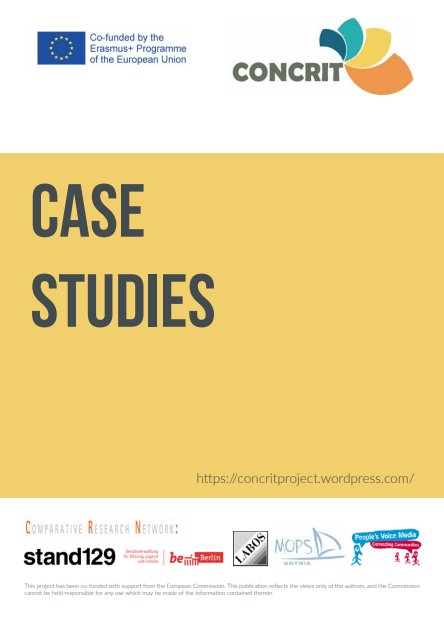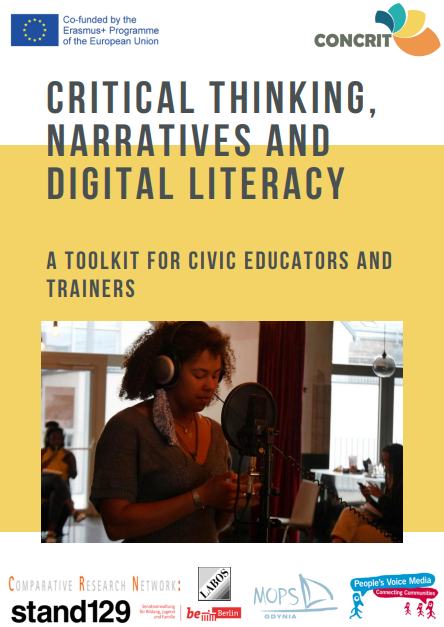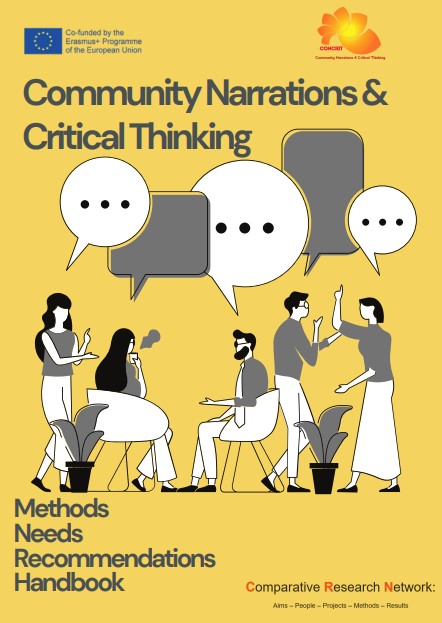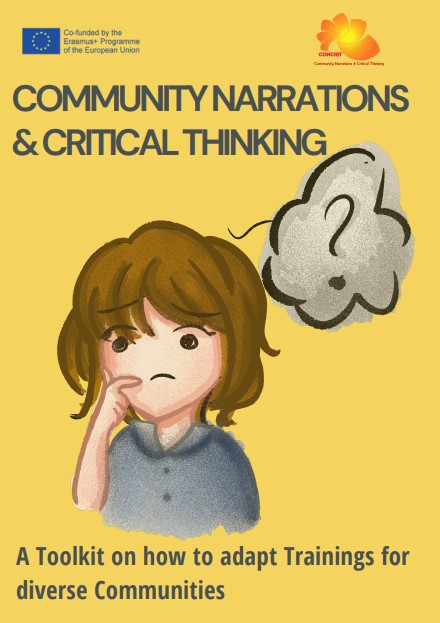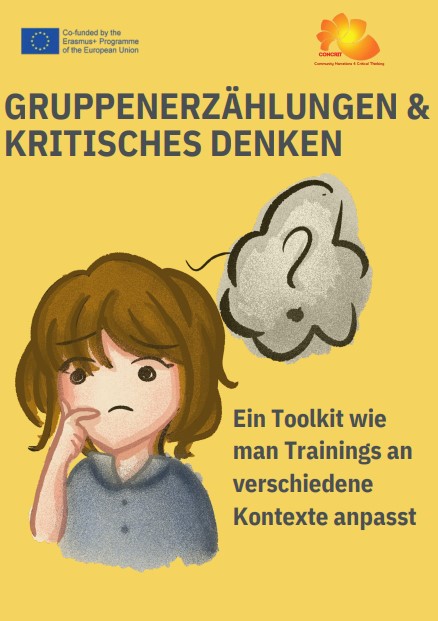The aim of CONCRIT is to work towards a socially cohesive Europe, which requires self-confident, fully informed and educated citizens. In Europe many small solutions exist isolated – or are created over and over again- without being connected.
CONCRIT aspires to connect those needs.
In the initial assessment, the partners identified needs, which can be answered by a general learning path that should address challenges as lacking insight of how participation works, the general disenchantment of marginalised communities from politics and digital exclusion.
The educators seek learner driven tools, way to build a community and to de-construct discriminatory
stereotypes. The learners need digital learning tools/ methods which engage and work with different communities and developing storytelling and group narratives as a method for civic education.
The partners are:
Comparative Research Network, Germany (coordinator);
Berliner Senatsverwaltung für Bildung, Jugend und Familie, Germany;
Miejski Osrodek Pomocy Spolecznej w Gdyni, Poland;
Cartias der Erzdiozese Wien, Austria;
Peoples‘ Voice Media, UK
Laboratorio per le Politiche Sociali, Italy.
The direct target groups of CONCRIT are adult educators, volunteers and community worker focused on civic education. The indirect are learners, members of the marginalised communities and on a deeper level all European citizen.
Community Narration utilizes personal stories and community narratives as an entry into the evaluation process. The process attempts to reduce hierarchies between the “consultant” (e.g. facilitators, educators, social workers) and the community involved.
The community narratives consist out of personal stories, however stories and narratives are intimately tied with one another. Each community has a unique set of narratives that are a source of growth, and a way for a community to creatively find its narratives.
Telling stories is an enjoyable and enriching experience and community members feel like becoming understood from the outside. Understanding personal and community narratives helps all stakeholders to better understand the community. This community narration could be easily used to teach and understand critical thinking.
The project will be combined out of 5 phases and will produce 3 intellectual outputs.
The input phase is a desktop-research on smart practices in teaching digital narration principles and media literacy. The results will be presented at Transnational Meetings and facilitators will be invited to test them in a peer-review lab.
During the Creation phase, the intellectual output will be created. The collected practices, methods and
experiences are reviewed and used to co-design two learning paths.
During the adaption phase the partners will work with the general learning path and create the locally working adaptions. At the end of the phase all paths (1 general and 6 local) will be ready to be tested.
In the Testing and reflection phase 2 impact trainings will be organised, where the developed paths will be applied to local stakeholder.
In the sharing phase, the paths will be presented to the public in multiplier events. The reviewed smart practices will be published in a digital repository and in a series of multiplier events.
CONCRIT will create:
1. A training plan (learning path) on how to include digital storytelling and media literacy in broadly general civic education, which is flexible for various target groups and communities, which their specific challenges and perspectives
2. A training plan (learning path) on how to adapt the previous path to the different situation. The path will contain 6 sample plans developed and tailored for the needs of the 6 partners plus instructions on how the paths might be altered and adapted.
3. A Digital repository/Map which will collect methods and tools of teaching digital literacy – available for any interested citizen in Europe.
Next to these we plan to deliver the following results:
1. Development of a sustainable strategic partnership for ongoing collaboration and sharing of smart practices
2. A website to support community narrators, organisations and facilitators.
3. A report on civic education methods to involve disadvantaged communities through media literacy
We expect that adult facilitators will gain a new tool to train and teach and empower the communities.
The general learning path will provide easy hands-on tools, providing innovative methods, which will motivate the learners to stay involved and feel empowered.
In the adapted learning paths, the learners will learn how to get involved, strengthen their awareness on social and political processes and make them aware of their rights as citizens.
Teaching approaches as critical thinking or the construction and de-construction of narratives strengthen the self-confidence of the learners. They will have a stronger personality and a strengthen sense for local, helping to fight back radicalization and exclusion.

